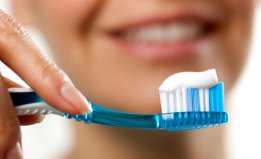It's not uncommon for people to grind or clench their teeth, particularly during moments of stress. However, over a prolonged period this can become habitual, especially if the person has a lot of anxiety in their daily life. If teeth grinding is frequent, then it is referred to as bruxism.
If left untreated, bruxism may cause lasting and irreversible damage to teeth, triggering other problems as well such as jaw pain, headaches, and earaches. When bruxism is present without any other medical condition as its cause, it's primary bruxism. However, if another condition is at its root, then it's termed secondary bruxism.
Causes of bruxism
Seven out of ten people with bruxism experience it as a result of anxiety or stress and is often a subconscious action while they're sleeping. But this isn't the only cause:
Jaw issues
Occlusal discrepancy means a person's jaw is misaligned, as the bottom and top teeth don't meet as they should. This condition can predispose individuals to experiencing bruxism. However, crooked and missing teeth can also cause misalignment and bruxism. If jaw problems are at the root of the condition, bruxism may go away if these underlying structural issues are fixed.
Some medication
Medication can cause bruxism as a side effect, particularly antipsychotics, psychotropic, and antidepressants. Of these types, those that are more likely to induce bruxism are SSRIs (selective serotonin reuptake inhibitors), which include drugs like sertraline and paroxetine.
Treatment for bruxism
Treatment options for bruxism will allow the sufferer to feel less pain and stop teeth from becoming damaged. Grinding and clenching will ideally be reduced greatly as well.
Most commonly, a dentist can prescribe sufferers a splint or mouthguard, which protects teeth from becoming damaged. These come in different styles depending on individual needs. Dentists can advise you on the one that will best fit your mouth and protect your teeth.
Mouthguards won't prevent or stop a person from grinding their teeth, but they will reduce the pressure and contact that causes damage over time. The jaw will also be kept in a position that isn't as tense to promote relaxation and discourage grinding. If one type of guard doesn't offer the results you're looking for, it's recommended that you try a different one.
When different types of guards have been used and none of them are offering any change in the presence of bruxism, then surgery or braces may be a consideration if teeth are misaligned. But these are only offered in rare circumstances and are less likely to resolve bruxism than guards and splints.
Complications if untreated
If allowed to continue over a long period of time, Bruxism can cause tooth pain and even eating disorders. Sufferers will have increased sensitivity in both their jaw and teeth, which may cause insomnia or depression. Teeth can also become damaged and gums may become inflamed or recede.
Long-term solutions
As stress is often the cause of bruxism, in the long term finding effective ways to deal with anxiety can be the answer to recovering from the condition for good. Methods for this include breathing and relaxation techniques, such as meditation or yoga, as well as exercise and talk therapy. Even after bruxism has gone away, individuals should ensure they regularly visit the dentist to maintain their oral health.
Book an appointment at Box Hill dental clinic to begin your journey to beating Bruxism. Simply give us a ring on (03) 8547 9556 or use our website to set up a date and time that works for you. One of our professional team will call you back to confirm all the details.






